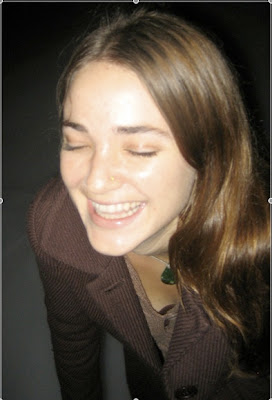CS says it best really.....:-)
“This, so far as I can see, is the specific value or good of literature considered as Logos; it admits us to experiences other than our own....
They are not, any more than our personal experiences, all equally worth having. Some, as we say, 'interest' us more than others. The causes of this interest are naturally extremely various and differ from one man to another; it may be the typical (and we say 'How true!') or the abnormal (and we say 'How strange!'); it may be the beautiful, the terrible, the awe-inspiring, the exhilarating, the pathetic, the comic, or the merely piquant. Literature gives the entree to them all. Those of us who have been true readers all our life seldom fully realize the enormous extension of our being which we owe to authors. We realize it best when we talk with an unliterary friend. He may be full of goodness and good sense but he inhabits a tiny world. In it, we should be suffocated. The man who is contented to be only himself; and therefore less a self; is in prison. My own eyes are not enough for me, I will see through those of others. Reality, even seen through the eyes of many, is not enough. I will see what others have invented. Even the eyes of all humanity are not enough. I regret that the brutes cannot write books. Very gladly would I learn what face things present to a mouse or a bee; more gladly still would I perceive the olfactory world charged with all the information and emotion it carries for a dog.
Literary experience heals the wound, without undermining the privilege, of individuality. There are mass emotions which heal the wound; but they destroy the privilege. In them our separate selves are pooled and we sink back into sub-individuality. But in reading great literature I become a thousand men and yet remain myself. Like the night sky in the Greek poem, I see with a myriad of eyes, but it is still I who see. Here, as in worship, in love, in moral action, and in knowing, I transcend myself; and am never more myself than when I do.”
(AEIC. 138-141) Lewis, C.S. An Experiment in Criticism.
They are not, any more than our personal experiences, all equally worth having. Some, as we say, 'interest' us more than others. The causes of this interest are naturally extremely various and differ from one man to another; it may be the typical (and we say 'How true!') or the abnormal (and we say 'How strange!'); it may be the beautiful, the terrible, the awe-inspiring, the exhilarating, the pathetic, the comic, or the merely piquant. Literature gives the entree to them all. Those of us who have been true readers all our life seldom fully realize the enormous extension of our being which we owe to authors. We realize it best when we talk with an unliterary friend. He may be full of goodness and good sense but he inhabits a tiny world. In it, we should be suffocated. The man who is contented to be only himself; and therefore less a self; is in prison. My own eyes are not enough for me, I will see through those of others. Reality, even seen through the eyes of many, is not enough. I will see what others have invented. Even the eyes of all humanity are not enough. I regret that the brutes cannot write books. Very gladly would I learn what face things present to a mouse or a bee; more gladly still would I perceive the olfactory world charged with all the information and emotion it carries for a dog.
Literary experience heals the wound, without undermining the privilege, of individuality. There are mass emotions which heal the wound; but they destroy the privilege. In them our separate selves are pooled and we sink back into sub-individuality. But in reading great literature I become a thousand men and yet remain myself. Like the night sky in the Greek poem, I see with a myriad of eyes, but it is still I who see. Here, as in worship, in love, in moral action, and in knowing, I transcend myself; and am never more myself than when I do.”
(AEIC. 138-141) Lewis, C.S. An Experiment in Criticism.


